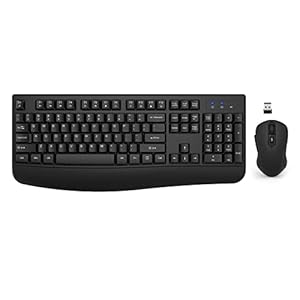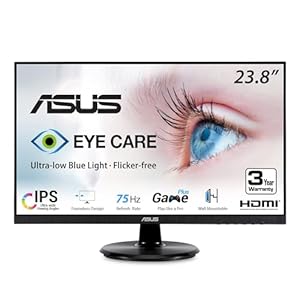Most microSD playing cards are quick sufficient for enhancing cupboard space and making easy file transfers, however some present slightly extra worth than others. In the event you’ve acquired a tool that also accepts microSD playing cards — whether or not it’s a gaming handheld, a touch cam, a drone or an Android tablet — we’ve scoured the market and put greater than a dozen prime contenders by way of quite a few benchmark assessments. You will discover our prime suggestions under, alongside some normal procuring recommendation earlier than you seize one.
Desk of contents
Finest microSD playing cards of 2025
What to search for in a microSD card
Capability
The very first thing to determine when shopping for a microSD card is how a lot cupboard space you want. Trendy playing cards are often obtainable in sizes starting from 32GB to 512GB, with a number of fashions now obtainable in 1TB or 1.5TB capacities as effectively. The primary 2TB cards from major brands have began to reach in current months as effectively, which is thrilling, however these are nonetheless pretty uncommon (and really costly) by comparability.
For many, a 128GB or 256GB mannequin needs to be a candy spot between worth and cupboard space. However for those who want extra room — say, for stashing a bunch of video games on a Steam Deck — a 512GB card or better might make extra sense and infrequently offers a greater cost-per-GB ratio. Lately, yow will discover an honest 128GB card for round $15 or much less, a great 256GB card for lower than $30 and a strong 512GB card for lower than $40 (with sooner fashions priced slightly greater). There’s a starker enhance if you go as much as 1TB playing cards, which frequently value nearer to $100, although we’ve seen some fall into the $70 to $80 vary throughout the final 12 months. The primary wave of 2TB playing cards are an excellent larger leap: the 2TB SanDisk Excessive, for instance, is priced at $200.
Word {that a} microSD card’s efficiency might differ relying on what capability you purchase. SanDisk says its 128GB Extreme card delivers sequential write speeds as much as 90 MB/s, for instance, whereas the higher-capacity fashions in the identical line supply as much as 130 MB/s.
After we discuss microSD playing cards in the present day, we often confer with playing cards that use the microSDXC (eXtended Capacity) standard, which have a capability between 32GB and 2TB. Your machine must help this for it to work with a microSDXC card. It will nearly by no means be a difficulty nowadays, however some older units (a Nintendo 3DS, as an illustration) are solely appropriate with microSDHC (Excessive Capability) playing cards, which vary from 2GB to 32GB.
Learn and write speeds
MicroSD playing cards are primarily judged on their learn and write speeds, that are often measured in megabytes per second (MB/s). Usually, most microSD playing cards have sooner learn speeds than write speeds.
These metrics can then be damaged down into sequential and random efficiency. Sequential learn and write speeds matter if you’re attempting to entry or save lengthy, fixed streams of knowledge, comparable to opening a big video or copying an enormous batch of information from a PC. If you wish to use a microSD card for media storage, that is significantly essential. Random efficiency, in the meantime, is about how rapidly a card can learn and write small information scattered all through the machine.
Since random learn/write speeds are a lot decrease than sequential ones, storage machine makers have a tendency to not promote them as loudly. However they’re essential for those who use a card with a gaming machine or a single-board laptop just like the Raspberry Pi, the place it typically has to quickly save and entry small bits of knowledge in random places.
Velocity rankings
In the event you take a look at a microSD card, you’ll see a buffet of numbers, letters and symbols. Most of those confer with the cardboard’s speed class and efficiency rankings, that are decided by the SD Association.
A card’s Video Velocity Class, or V-rating, particulars its minimal sequential write velocity, which is particularly essential when recording video from a digicam. It ranges from V6 to V90. Many of the playing cards we examined had a V30 ranking, in order that they have a sequential write velocity of not less than 30 MB/s. This needs to be sufficient to help as much as 4K video at decrease bitrates. Increased-rated V60 and V90 playing cards are often higher for capturing 8K, however they arrive at a a lot greater value.
The UHS Velocity Class, or U-rating, additionally refers to a card’s minimal sequential write velocity. It is available in two varieties: U3, which mandates a minimal of 30 MB/s, and U1, which is rated for 10 MB/s.
The older Velocity Class ranking overlaps with the opposite two methods. It’s signified by a C image and goes from Class 2 to Class 10, with the quantity (once more) indicating minimal sequential write velocity. This ranking is much less related these days, however you should still see a “C10” emblem on some playing cards.
The Software Efficiency spec, marked by an A logo, is an indicator of random learn/write speeds. That is measured in IOPS, or enter/output operations per second, relatively than MB/s. There are two classes right here: A1 playing cards supply a minimal random learn velocity of 1,500 IOPS and a minimal random write velocity of 500 IOPS, whereas A2 playing cards bump these as much as 4,000 IOPS and a pair of,000 IOPS, respectively. Each rankings additionally assure sequential write speeds of not less than 10 MB/s.
To maintain it easy, most individuals ought to search for a card with V30, U3 and A2 rankings. It’s completely attainable to get a strong card with out these: A U1 card may be value it for those who simply want an inexpensive, high-capacity choice, for instance. V60 and V90 playing cards are value a glance for those who’re severe about taking pictures high-resolution pictures and video as effectively. However general, playing cards with the certifications above ought to present the most effective mix of worth and efficiency in the present day.
It’s essential to emphasise that these rankings are baselines. Most V30 playing cards supply considerably greater write speeds than 30 MB/s, as an illustration, and a few A1 playing cards can outperform some A2 fashions in apply. The speeds marketed by producers aren’t all the time 100% correct, both: Typically the cardboard shall be slower in real-world use, different instances it might really be a bit sooner.
UHS bus speeds
The opposite spec to notice is the cardboard’s bus interface. Most microSD playing cards obtainable in the present day are UHS-I, which have a theoretical most velocity of 104 MB/s. There are additionally UHS-II playing cards, which have an additional row of pins on the again and might attain as much as 312 MB/s. (A UHS-III customary technically exists as effectively however hasn’t seen large adoption.) These are labeled on the cardboard with a Roman numeral I or II.
UHS-II playing cards are often those with these greater V60 or V90 rankings. In the event you shoot numerous 4K to 8K video or incessantly use burst mode to seize extremely high-res pictures, the efficiency features of a great UHS-II card can prevent time.
Nonetheless, these are rather more costly than UHS-I playing cards: This 128GB Lexar Professional Gold mannequin, as an illustration, is a relative discount at $40. Whereas that is lower than many UHS-II fashions we’ve seen prior to now, it is nonetheless greater than double the everyday worth of our prime choose talked about under. You want a tool that’s appropriate with the UHS-II interface to see any advantages, too, and inventory for UHS-II playing cards is usually spottier. For now, the upper speeds aren’t definitely worth the worth premium for most individuals, so we caught largely to UHS-I playing cards with our suggestions.
Absolutely the quickest microSD playing cards you should purchase proper now, although, are primarily based on a unique interface referred to as SD Express. This has technically been around for a number of years and now includes its personal subset of speed classes, however the gist is that it is a lot sooner than UHS-I or UHS-II: SanDisk’s just lately launched microSD Express card, which is the primary commercially obtainable mannequin we’ve examined, advertises sequential learn speeds as much as 880MB/s. For context, that’s faster than some older SSDs.
It’s a considerable improve that — spoiler alert — has largely held up in our testing, however nearly zero common units natively help SD Specific proper now, and once more, SanDisk’s card prices rather more than the most effective UHS-I choices. It’s nonetheless attainable to benefit from the boosted efficiency with a devoted SD Specific card reader, however that provides much more to the ultimate value. It’s additionally value noting that SD Specific playing cards aren’t backwards appropriate with UHS-II (or UHS-III), so for those who attempt to plug one into a tool with a UHS-II slot, it’ll be restricted to UHS-I speeds. Nonetheless, the tech ought to have loads of attraction if extra devices that help the interface do arrive. In addition to SanDisk, Samsung has said it plans to launch an SD Specific card as effectively.
A be aware on card readers and reaching marketed speeds
Whereas the UHS-I interface has a theoretical most of 104 MB/s, some UHS-I playing cards can exceed that velocity by way of proprietary extensions. Nonetheless, you want a appropriate card reader and host machine to benefit from that further efficiency. In the event you discover a UHS-I card promoting speeds greater than 104 MB/s, that is what’s happening. You’ll be able to see these limits in motion with a Nintendo Swap or Steam Deck: Both of those gaming units help the UHS-I interface however don’t transcend its official velocity, flattening any sequential features some playing cards might have elsewhere. (Variations in random learn and write speeds can nonetheless matter, although.) The identical factor will occur for those who plug a extra highly effective UHS-II or SD Specific card into a tool that doesn’t settle for these interfaces.
The takeaway: Your microSD card will solely be as quick because the slowest hyperlink in your chain.
Guarantee
Many microSD playing cards are designed to be sturdy, with safety from water, excessive temperatures, X-rays and drops. Nonetheless, in case of disaster, a protracted guarantee is all the time good to have. Many producers supply lifetime or 10-year restricted warranties, although we’ve seen that “endurance” playing cards marketed to face up to extra hours of writing are often lined for a shorter time frame. For instance, Samsung’s Pro Endurance, a mannequin aimed toward safety cameras and different monitoring units, comes with a five-year guarantee.
Avoiding counterfeits
The reminiscence card market has had a selected downside with scammers promoting faux merchandise. To protect in opposition to this, solely purchase from a identified model and a good retailer comparable to Finest Purchase, B&H Picture or Adorama. In the event you store at Amazon, solely purchase if the shipper and vendor is Amazon.com. (That stated, a handful of customers have reported receiving counterfeits even from Amazon instantly prior to now.) Keep in mind: If a worth appears too good to be true, it in all probability is. Be cautious of any retailer providing considerably a cheaper price than others.
When you obtain a card, verify its packaging for any irregularities. You’ll be able to run benchmark assessments like CrystalDiskMark or BlackMagic Disk Speed Test to confirm its speeds aren’t drastically decrease than what’s marketed (or attainable, given its specs). You may as well use software program that’s designed to confirm the true capability and efficiency of your card, comparable to H2testw and FakeFlashTest.
How we check microSD playing cards
We have put shut to twenty microSD playing cards by way of a collection of assessments to confirm their sequential and random efficiency. These included benchmarks like CrystalDiskMark, BlackMagic Disk Speed Test, ATTO Disk Benchmark and AJA System Test, in addition to just a few “real-world” assessments. We copied and pasted a small folder of pictures about 1.15GB in measurement to and from every card, then did the identical with a bigger 12.2GB folder containing a number of file sorts and subfolders, timing the method every time. We additionally checked how every card carried out on the Steam Deck, downloading video games of various sizes — together with Stardew Valley, Aperture Desk Job, Metal Gear Rising: Revengeance and Apex Legends — then timing how lengthy it took to launch every recreation and cargo save information.
The place relevant, we used a Kingston USB 3.2 UHS-II reader to check every card on each Home windows 11 and macOS Sonoma. Nonetheless, if a card could possibly be bundled with (or is particularly marketed to make use of) a proprietary reader, we primarily examined with that, since we determine that’s the one most consumers will find yourself utilizing. For Home windows testing, we used an Alienware gaming PC with an Intel Core i9-10900F, Nvidia GeForce RTX 3080 GPU, 32GB of RAM and a 1TB SSD. For macOS, we used a 2021 16-inch MacBook Professional with an Apple M1 Professional chip, 16GB of RAM and a 512GB SSD. If a reader couldn’t join over USB-C, we used CalDigit’s TS4 dock to check the corresponding card on the MacBook.
We examined the 128GB model of every card wherever attainable, although for just a few playing cards — SanDisk’s Excessive and Samsung’s Professional Plus and Professional Final — we had been solely in a position to check higher-capacity fashions. We additionally reformatted every card earlier than testing with the SD Affiliation’s Memory Card Formatter tool.
Different notable microSD playing cards
Samsung Professional Final
The Samsung Pro Ultimate was the closest competitor to the Lexar Skilled Silver Plus throughout our benchmark assessments, but it surely’s tangible worse when it comes to sequential write speeds, usually prices extra and doesn’t supply a 1TB choice. The Samsung Professional Plus is a bit slower for sequential reads, but it surely’s shut sufficient in any other case and often simpler to seek out at a cheaper price.
Kingston Canvas Go Plus
The Kingston Canvas Go Plus is a tremendous card and value shopping for over the Samsung Evo Choose if the 2 are ever obtainable for a similar worth, however its sequential write speeds lagged effectively behind the Lexar Silver Plus and, to a barely lesser extent, Samsung Professional Plus.
Delkin Units Energy
We have not used it ourselves, however for those who’re keen to pay for a extra highly effective UHS-II card constructed for heavy-duty video recording, the Delkin Devices Power has tested well elsewhere and may ship considerably sooner sequential write speeds than our picks above. It’s one of many few UHS-II playing cards we might really discover in inventory, but it surely prices a ton, with a 128GB mannequin usually priced round $80.
SanDisk Excessive
The SanDisk Extreme successfully matched the Professional Plus in just a few of our sequential assessments, however that was partly because of us solely with the ability to safe the 256GB mannequin, which is higher-rated than the 128GB model. It’s a tremendous selection for those who see it on sale at a good vendor, but it surely’s broadly slower than our prime choose and infrequently prices extra.
SanDisk GamePlay
The SanDisk GamePlay performs equally to the SanDisk Excessive however prices a great bit further as of our newest replace. We couldn’t get it to achieve its marketed speeds with the corporate’s personal “Professional” card reader or different third-party choices, so it fell in need of our prime picks.
SanDisk Pokémon
The SanDisk Pokémon does outperform its marketed learn and write speeds, however not by sufficient to outpace the Lexar Silver Plus or Samsung Professional Plus. It primarily prices further for having an image of Pikachu (or Gengar, or Snorlax) on a product you’ll by no means take a look at.
Lexar Skilled 1066x
The Lexar Professional 1066x is one other OK different to the Samsung Professional Plus if our primary picks are unavailable, however its sequential reads and random speeds aren’t on par with both Samsung’s card or Lexar’s personal Silver Plus. That stated, it’s value getting over the Samsung Evo Choose for those who see it for a cheaper price, as its sequential write speeds are a lot sooner. It additionally comes with a lifetime restricted guarantee.
SanDisk Excessive Professional
The SanDisk Extreme Pro is an in depth analog to the Samsung Professional Final however, as of this writing, is both unavailable at most trusted retailers or priced too excessive by comparability. The Lexar Skilled Silver Plus has sooner sequential write speeds as effectively.
PNY Elite-X
The PNY Elite-X typically goes for reasonable and wasn’t too far off the random learn/write efficiency of Samsung’s Professional Plus in CrystalDiskMark, however its sequential speeds had been effectively behind our prime picks.
Current updates
February 2025: We’ve up to date this information with a brand new prime choose: the Lexar Skilled Silver Plus. The Samsung Professional Plus, our earlier advice, stays as a runner-up. We’ve additionally added SanDisk’s just lately launched microSD Specific card as a choose for many who need absolutely the quickest card attainable, albeit with heavy caveats. This is among the first microSD playing cards to make use of the SD Specific bus interface, so we’ve included extra particulars on what that entails in our “what to search for in a microSD card” part. Lastly, we’ve eliminated our write-up for SanDisk’s Apex Legends card, because it seems to have been discontinued, and included testing notes for a few the corporate’s newer releases.
November 2024: We have checked again with this information to make sure our suggestions are nonetheless correct and made gentle edits for readability.
August 2024: We’ve up to date this information to notice the just lately launched 1TB fashions for 3 of our prime picks: the Samsung Professional Plus, the Kingston Canvas Go Plus and the Samsung Evo Choose. We’ve additionally made positive all pricing particulars are as updated as they are often.
This text initially appeared on Engadget at https://www.engadget.com/computing/equipment/best-microsd-card-130038282.html?src=rss
Trending Merchandise

Wi-fi Keyboard and Mouse Combo, EDJO 2.4G Full-Sized Ergonomic Pc Keyboard with Wrist Relaxation and three Stage DPI Adjustable Wi-fi Mouse for Home windows, Mac OS Desktop/Laptop computer/PC

SAMSUNG 27″ Odyssey G32A FHD 1ms 165Hz Gaming Monitor with Eye Saver Mode, Free-Sync Premium, Height Adjustable Screen for Gamer Comfort, VESA Mount Capability (LS27AG320NNXZA)

ASUS VA24DQ 23.8â Monitor, 1080P Full HD, 75Hz, IPS, Adaptive-Sync/FreeSync, Eye Care, HDMI DisplayPort VGA, Frameless, VESA Wall Mountable ,BLACK

Logitech MK120 Wired Keyboard and Mouse Combo for Windows, Optical Wired Mouse, Full-Size Keyboard, USB Plug-and-Play, Compatible with PC, Laptop – Black

ASUS 31.5” 4K HDR Eye Care Monitor (VP327Q) – UHD (3840 x 2160), 99% sRGB, HDR-10, Adaptive-Sync, Audio system, DisplayPort, HDMI, Flicker Free, Blue Gentle Filter, VESA Mountable,Black










